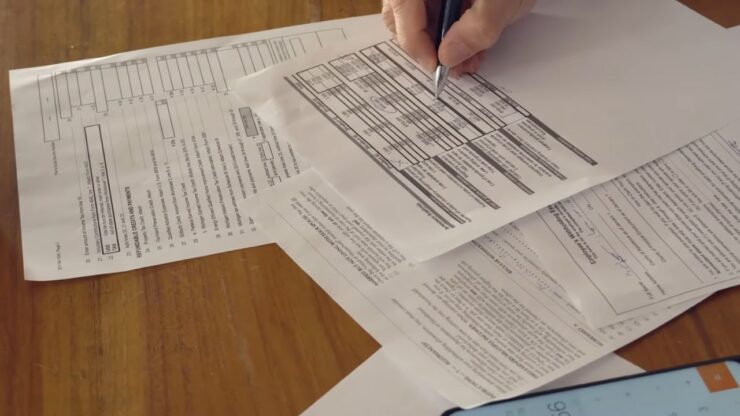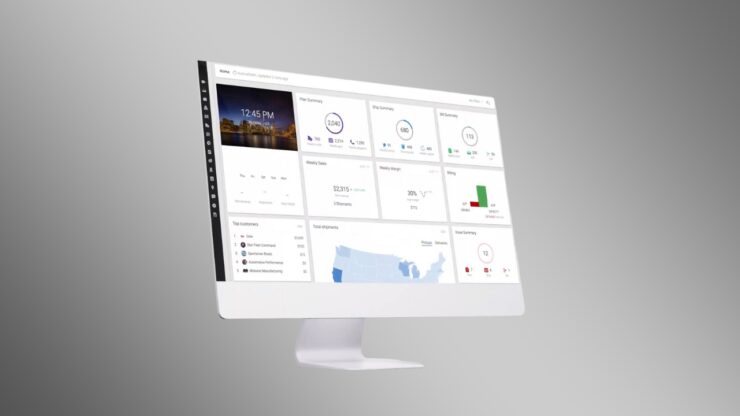Freight audit is a critical component of logistics management that entails the thorough examination and verification of freight bills to ensure accuracy and efficiency in shipping costs. With the complexity of cargo charges, surcharges, and accessorial fees, conducting a freight audit can be daunting yet rewarding.
This article aims to demystify the process and offer essential tips for conducting an efficient freight audit, ensuring that businesses can optimize their logistics operations and save on unnecessary costs.
Understanding Freight Audit

At its core, a cargo audit involves reviewing, adjusting, and verifying freight bills for accuracy. This process helps businesses identify billing errors, uncover inefficiencies in their shipping operations, and ultimately reduce costs.
In the fast-paced world of logistics, where every penny counts, the importance of a thorough cargo audit cannot be overstated. Learn more about freight audits at https://ctglobal-freightaudit.com/.
The Importance of Accurate Freight Bills
Accurate cargo bills are the cornerstone of efficient logistics management. Errors in freight bills can lead to significant financial losses over time. These errors can range from simple data entry mistakes to complex issues related to contractual terms and tariff classifications. By ensuring the accuracy of freight bills, companies can avoid overcharges and improve their bottom line.
Setting Up for Freight Audit Success
The first step towards a successful cargo audit is to have a clear process in place. This involves setting up internal procedures for collecting, organizing, and reviewing freight bills. It’s also crucial to have a designated team or individual responsible for the cargo audit process, equipped with the necessary tools and knowledge to perform the task effectively.
Leveraging Technology in Freight Audit

In today’s digital age, technology plays a pivotal role in streamlining the freight audit process. Cargo audit software and platforms can automate many aspects of the process, from data entry to discrepancy identification. Investing in the right technology can significantly reduce the time and effort required for a cargo audit, leading to more accurate and timely results.
Understanding Freight Contracts and Tariffs
A deep understanding of cargo contracts and tariffs is essential for an effective cargo audit. Familiarizing oneself with the nuances of shipping contracts, including rates, terms, and conditions, can help identify discrepancies in freight bills. It’s also important to stay updated on tariff changes and regulations that can impact shipping costs.
The Role of Data Analysis in Freight Audit
Data analysis is a powerful tool in the cargo audit process. By analyzing shipping patterns, costs, and carrier performance, businesses can identify trends and areas for improvement. This analysis can lead to more informed decision-making and strategic adjustments in logistics operations.
Communication with Carriers

Open and effective communication with carriers is crucial in resolving discrepancies and negotiating better terms. Building strong relationships with carriers can lead to more favorable rates and terms, as well as quicker resolution of disputes. It’s important to approach these communications with a collaborative mindset, aiming for mutually beneficial solutions.
Regular Review and Continuous Improvement
Freight audit is not a one-time task but an ongoing process that requires regular review and continuous improvement. Regularly auditing cargo bills and reviewing logistics operations can help businesses stay on top of changes and adapt their strategies accordingly. This proactive approach can lead to sustained cost savings and operational efficiencies.
Training and Knowledge Sharing
Investing in training and knowledge sharing within the organization can enhance the effectiveness of freight audits. Ensuring that the team involved in the audit process is knowledgeable about logistics, regulations, and best practices can lead to more accurate and efficient audits.
Compliance and Regulatory Considerations

Compliance with regulations and industry standards is a critical aspect of freight audit. Ensuring that cargo bills and shipping practices comply with legal requirements can help avoid penalties and maintain a good reputation. Staying informed about regulatory changes and incorporating compliance checks into the freight audit process is essential.
Outsourcing Freight Audit
For some businesses, outsourcing the freight audit process to specialized firms can be a viable option. These firms bring expertise and resources that can enhance the efficiency and accuracy of cargo audits. However, it’s important to choose a reputable and experienced provider and to maintain oversight of the process to ensure alignment with business objectives.
Navigating International Freight Audits
Navigating the complexities of international cargo audits adds another layer of challenge but also presents significant opportunities for cost savings and efficiency improvements. International shipments involve multiple carriers, varying regulations across countries, currency conversions, and potential customs and duty discrepancies. Understanding the intricacies of international logistics is crucial for conducting effective cargo audits in a global context.
To manage international freight audits effectively, it’s vital to have a comprehensive understanding of international trade regulations, incoterms, and customs processes. Misclassifications, incorrect tariff codes, or errors in customs documentation can lead to delays, penalties, and inflated costs. Businesses must also consider the impact of currency fluctuations on cargo charges and the importance of negotiating favorable terms in international shipping contracts.
Amidst these considerations, grasping the meaning of ‘In Transit’ becomes pivotal, as it plays a crucial role in monitoring the progress of shipments and ensuring timely deliveries.
The Future of Freight Audit

As the logistics industry continues to evolve, the role of freight audit is becoming increasingly strategic. Advances in technology, such as artificial intelligence and blockchain, are set to transform the cargo audit process, making it more efficient and integrated into broader supply chain management practices.
Staying abreast of these developments and exploring new ways to enhance the freight audit process will be key to maintaining a competitive edge in logistics management.
End Note
In conclusion, conducting a freight audit is an essential practice for any business involved in shipping and logistics. By ensuring the accuracy of freight bills, businesses can not only save on unnecessary costs but also gain insights into their logistics operations, leading to more informed decision-making and strategic improvements.
With the right approach, tools, and continuous effort, cargo audit can become a powerful lever for efficiency and cost savings in logistics management.
Related Posts:
- How to Start a Freight Forwarding Business: 14…
- Social Media Management Tips for New Overnight Stars
- Strategic Social Media Management: Monetizing Your…
- Moving to Las Vegas: Essential Tips for a Seamless…
- JIT Access Unveiled: Tips for Understanding this…
- Crypto Mass Payments Mastery: Essential Safety Tips…











